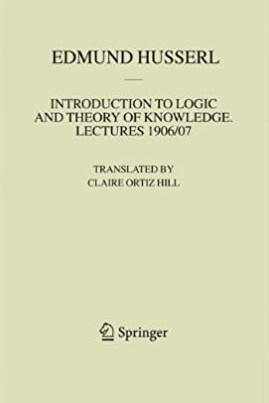This document is unfortunately not available for download at the moment.

Edmund Husserl (2008) Introduction to logic and theory of knowledge: Lectures 1906/07, Dordrecht, Springer.
Noetics as theory of justification of knowledge
Edmund Husserl
pp. 115-154
Not implemented yet !


